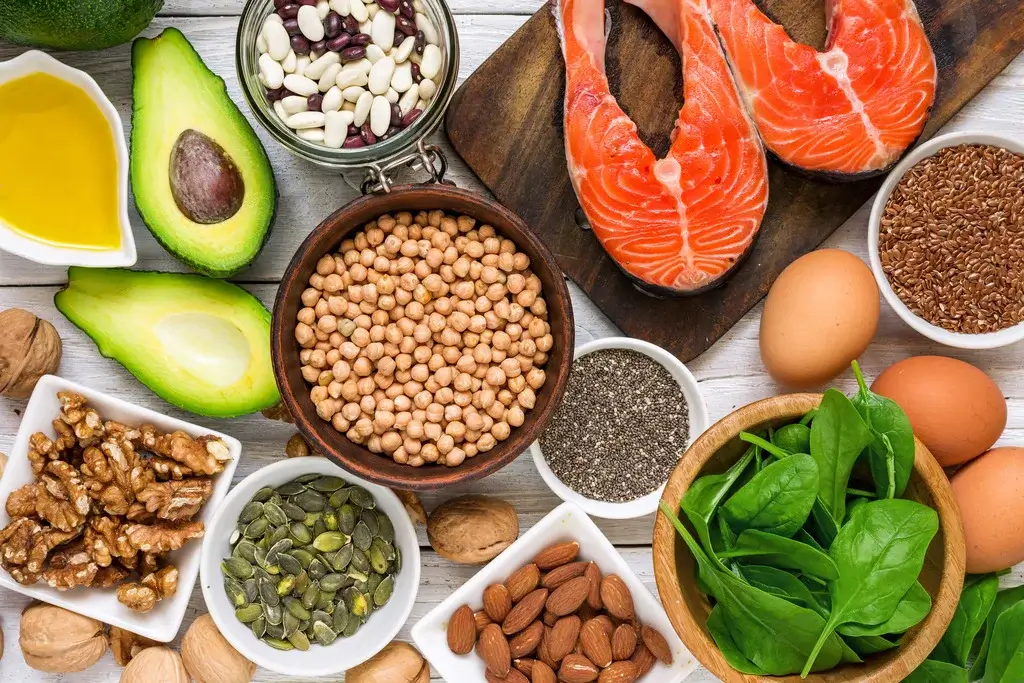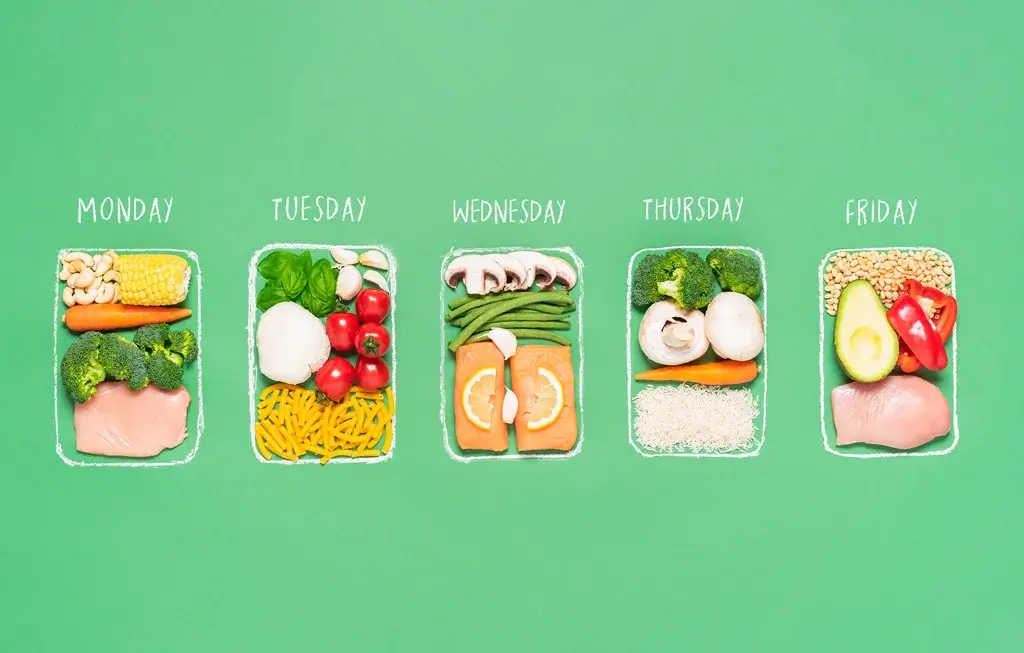Heart-Healthy Foods to Eat for Optimal Heart Health

When it comes to maintaining a healthy lifestyle, the importance of consuming heart-healthy foods in daily meals cannot be overstated. By doing so, you can effectively lower your risk of developing cardiovascular diseases and enjoy the numerous benefits of a healthy heart. It can help lower cholesterol levels, reduce blood pressure, and decrease the risk of developing heart-related issues.
Why is It Important to Eat Heart-Healthy Foods?
Cardiovascular disease is the leading cause of death worldwide. It is estimated that around 17.9 million people die each year from cardiovascular diseases, accounting for 31% of all global deaths, highlighting the urgency of addressing this global health crisis. This includes conditions such as heart disease, stroke, and high blood pressure. Cardiovascular disease is mainly caused by smoking, an unhealthy diet, physical inactivity and excessive alcohol consumption. Smoking, in particular, is a major contributor to heart disease and stroke, as it damages the blood vessels and increases the risk of blood clots.
The Importance of Heart-Healthy Eating for Heart Health
Eating healthy foods is crucial for maintaining optimal heart health. A diet rich in heart-healthy foods, such as fruits, vegetables, and lean meat can help reduce the risk of developing heart disease and prevent various complications. In addition to incorporating heart-healthy foods into your diet, it is important to limit the intake of unhealthy foods like processed meats, sugary drinks, and high-sodium foods, which can increase the risk of heart disease.
Risk of Heart Disease and the Role of Heart-Healthy Foods
High cholesterol levels can significantly increase the risk of heart disease. High cholesterol levels can cause a buildup of plaque in the arteries, leading to a condition known as atherosclerosis. This can restrict blood flow to the heart and increase the risk of a heart attack or other cardiovascular problems. Excessive saturated fat intake can contribute to high cholesterol levels because it raises the levels of LDL cholesterol also known as "bad" cholesterol, which can lead to plaque buildup in the arteries and increase the risk of heart disease.
How to Lower Your Risk of Heart Disease with Heart-Healthy Foods
Incorporating heart-healthy foods into your diet can effectively lower your risk of heart disease. By consuming nutrient-dense foods, such as whole grains, greens, and food that are high in omega-3 fatty acids, you can improve your heart and reduce the risk of cardiovascular diseases.
Benefits of Heart Health Through Heart-Healthy Eating
Consuming foods that are rich in antioxidants, healthy fats, and essential nutrients can help protect your heart against heart disease and promote overall cardiovascular well-being. Additionally, a healthy diet can aid in weight management, reducing the risk of obesity and related heart issues such as diabetes.
Prevent Heart Disease with Heart-Healthy Foods
Heart disease can often be prevented or managed through lifestyle changes, including a healthy diet. Incorporating heart-healthy foods into your daily meals can help lower your risk of developing heart disease. Foods such as fatty fish, whole grains, nuts, eggs and fruits and vegetables are all great options to include in a heart-healthy diet. These foods are rich in nutrients that can help lower blood pressure, reduce inflammation, and improve overall heart health. You do not need to consume all of them at once. Making small changes and incorporating more heart-healthy foods into your diet little by little can still have a big impact on long-term cardiovascular health.
What Are the Best Heart-Healthy Foods to Include in Your Diet?

Consuming heart-healthy food is essential for maintaining cardiovascular health and preventing heart disease. But what is heart-healthy food? In essence, heart-healthy food encompasses all foods that promote cardiovascular well-being by lowering LDL cholesterol, increasing HDL (good) cholesterol, lowering blood pressure, reducing inflammation, and promoting overall cardiovascular health. Examples of such foods are plant-based food and lean meats, like the Mediterranean diet.
Must-Have Healthy Fats for a Healthier Heart
Including healthy fats in your diet is essential for maintaining a healthier heart. Healthy fats, such as omega-3 and omega-6 can be found in salmon, olive oil, and certain nuts. These fats can help reduce LDL cholesterol levels and lower the risk of heart disease. However, moderation is key, as healthy fats are still calorie-dense, so be sure to consume them in appropriate portions to maintain a balanced diet.
Incorporating Whole Grains into Your Heart-Healthy Diet
Whole grain has the whole part of the grain kernel still intact, including the bran, germ, and endosperm. This means that whole grains are a more nutritious and fibre-rich option than refined grains, which have had the bran and germ removed. Whole grains, including oats and quinoa, help lower cholesterol levels and reduce the risk of cardiovascular diseases.
Power of Avocado in Maintaining Heart Health
Avocados are an excellent source of fibre, healthy fats, and potassium, making them an excellent choice for promoting heart health especially when included with a balanced and nutritious diet. Studies show that avocado consumption hinders cholesterol absorption and contributes to lower cholesterol levels.
Greens: Essential in Heart-Healthy Meals
Greens, such as spinach, kale, and Swiss chard are rich in antioxidants and essential nutrients that benefit heart health. They also contain high levels of nitrates, which have been shown to help lower blood pressure and improve overall cardiovascular function. In addition, greens have a high fibre content that helps to lower cholesterol levels and reduce the risk of developing type 2 diabetes, both of which are risk factors for heart disease.
Importance of Including Salmon in Your Heart-Healthy Meal Plan
Salmon is a key ingredient in a heart-healthy meal plan due to its high content of omega-3 fatty acids, which have been shown to lower the risk of heart disease and stroke. These beneficial fats can help to reduce inflammation, decrease blood pressure, and improve the function of blood vessels. Additionally, salmon is a great source of high-quality protein, which is essential for maintaining muscle mass and overall health. Including salmon in your diet can also help to lower levels of triglycerides and increase levels of good cholesterol, further promoting heart health. Furthermore, salmon is rich in important nutrients such as vitamin D and selenium, which play a role in supporting heart function.
How to Incorporate Heart-Healthy Foods into Your Daily Meals?

Incorporating heart-healthy foods into your daily meals is essential for maintaining cardiovascular health. Start by stocking your kitchen with plenty of fresh fruits and vegetables, whole grains, and lean proteins such as fish and poultry. Opt to snack on nuts and seeds in moderation for extra heart-healthy fats and protein boost. It's also important to limit your intake of processed and high-fat foods, as well as to watch your sodium intake. By consciously choosing heart-healthy foods for your meals and snacks, you can significantly reduce your risk of heart disease and promote overall well-being.
Sodium Intake and Its Impact on Heart Health
Sodium intake plays a significant role in heart health, as excessive consumption can lead to high blood pressure and an increased risk of heart disease. The American Heart Association recommends consuming no more than 2,300 milligrams of sodium per day, with an ideal limit of 1,500 milligrams for most adults. High levels of sodium can cause the body to retain water, putting added strain on the heart and blood vessels. This can lead to hypertension, a major risk factor for heart attacks and strokes.
Healthy Snack Foods for a Well-Balanced Heart-Healthy Diet
When it comes to snack foods, choosing the right options can make a big difference. Instead of reaching for sugary or salty snacks, consider incorporating healthy options into your diet. Nuts, such as almonds, walnuts, and pistachios, are great choices for a heart-healthy snack. They are high in unsaturated fats, which can help lower cholesterol levels. Fresh fruits and vegetables are also excellent options for snacking, as they are high in fibre, vitamins, and minerals. Incorporating whole grains, such as whole-grain crackers, can also provide a satisfying and heart-healthy snack. Greek yoghurt and low-fat cheeses are good sources of protein and calcium, which can help support good heart health.
Choosing Foods Low in Saturated and Trans Fats for Heart Health
When it comes to your heart’s health, choosing foods low in saturated and trans fats is essential. These types of fats can increase levels of LDL cholesterol. To lower your intake of these harmful fats, opt for lean proteins such as chicken, turkey, and fish, and choose fat-free or low-fat dairy products. Incorporating plenty of fruits, vegetables, and whole grains into your diet can also help reduce the amount of saturated and trans fats you consume. When cooking, use healthier oils like olive or canola oil instead of butter or lard. Reading nutrition labels is crucial, as many processed foods and snacks contain high levels of these unhealthy fats.
Meal Planning and Heart-Healthy Eating
Meal planning is essential for maintaining a heart-healthy diet. By carefully selecting and organising meals ahead of time, you can ensure the consumption of nutritious and balanced foods that support your heart health. When planning meals, it is important to incorporate a variety of fruits, vegetables, whole grains, and lean proteins. Additionally, meal planning allows individuals to minimise the consumption of unhealthy fats, sodium, and added sugars, which can contribute to heart issues.
Creating Heart-Healthy Meals to Eat Every Day
Creating heart-healthy meals to eat every day is essential for maintaining overall health and well-being. By focusing on incorporating nutrient-dense foods such as fruits, vegetables, whole grains, lean proteins, and healthy fats, individuals can help reduce their risk of heart disease and improve their overall cardiovascular health. Some simple strategies for creating heart-healthy meals include choosing healthy cooking methods such as baking, grilling, or steaming instead of frying. Additionally, incorporating plenty of colourful fruits and vegetables into meals provides essential vitamins, minerals, and antioxidants that support heart health. By making small changes to daily meals, such as reducing sodium and added sugars, you can support their heart health and reduce their risk of developing chronic conditions. It's important to remember that small changes can lead to big improvements in overall heart health, making it easier to maintain healthy habits in the long run.
What Are the Benefits of Including Heart-Healthy Foods in Your Diet?

By incorporating heart-healthy foods you can improve your cholesterol levels, lower your blood pressure, and maintain a healthy weight, all of which are critical for heart health. Additionally, these foods are often filled with antioxidants and other nutrients that can help reduce inflammation and support proper heart function.
How Heart-Healthy Foods Help Lower Cholesterol Levels
Foods high in soluble fibre help prevent your digestive tract from absorbing cholesterol. Soluble fibre binds to cholesterol in the digestive system and helps to carry it out of the body, reducing the amount of cholesterol that is absorbed into the bloodstream. This can help to lower overall cholesterol levels and reduce the risk of heart disease. Some examples of foods high in soluble fibre include apples, oranges, carrots, broccoli, oats, barley, and legumes.
Reducing the Risk of Developing Heart Disease with Heart-Healthy Foods
Prioritising a balanced and varied diet, individuals can significantly reduce their risk of developing heart disease and promote overall heart health. Consuming a variety of heart-healthy foods can help to lower blood pressure, improve cholesterol levels, and reduce inflammation, all of which are risk factors for heart disease. It is important to note that a well-balanced diet in conjunction with regular physical activity is crucial for overall heart health.
Improving Heart Health with a Variety of Heart-Healthy Foods
The key is to focus on eating a wide range of nutrient-dense healthy foods that provide essential vitamins and minerals while also reducing the intake of processed and high-fat foods. Here are some tips to help achieve this balance:
- Include a variety of fruits and vegetables in your diet to ensure you get a range of vitamins and minerals. Different colours of fruits and vegetables provide different nutrients, so aim for a rainbow of options. Do not forget to include leafy greens as it helps protect arteries.
- Choose whole grains, such as brown rice, quinoa, and whole wheat bread, over refined grains, such as white rice and white bread. Whole grains provide more nutrients and fibre.
- Include lean sources of protein, such as chicken breast, salmon, sardine, beans, eggs, legumes, and tofu, in your meals. These low-fat foods provide important nutrients, such as iron and protein, without the high levels of saturated fat found in red meat.
- Incorporate healthy fats, such as those found in avocados, sunflower seeds, chia seeds, flaxseed, and olive oil, into your diet. These fats are necessary for overall health and can help reduce the risk of heart disease.
How Heart-Healthy Eating Can Contribute to Cardiovascular Health
A balanced diet that is high in fruits, vegetables, whole grains, and lean protein can help lower cholesterol levels, and blood pressure, and reduce inflammation, all of which are key factors in maintaining good heart health. By making smart and conscious food choices, individuals can greatly impact their cardiovascular health and overall well-being. It's essential to prioritise heart-healthy eating as part of a proactive approach to preventing heart disease and maintaining a healthy heart.
Conclusion
Our hearts are the engines that keep us going, and nourishing them with the right fuel is crucial for a long and healthy journey. Heart-healthy eating goes beyond just avoiding saturated fats and cholesterol. It is about embracing a symphony of balanced and nutritious ingredients that work together to support and protect our cardiovascular ecosystem.
Remember, heart-healthy eating is a journey, not a destination. Experiment with different flavours, explore new ingredients and find what makes your taste buds and your heart happy. By incorporating these heart-healthy ingredients into your diet, you are building a foundation for a long and vibrant life, one delicious bite at a time.
Frequently Asked Questions About Heart-Healthy Foods
What Are Heart-Healthy Foods?
Heart-healthy foods that are good for the heart include vegetables, fruits, whole grains, fish, lean meats, eggs, nuts, and legumes. These foods promote heart health.
What Is the Healthiest Food for Your Heart?
The healthiest foods for the hearts will be vegetables, fruits, whole grains, fish, lean meats, eggs, nuts, and legumes. Remember to not eat just one, but incorporate variety in your nutritious and balanced meal.
What Foods Prevent Heart Attacks?
Foods that are rich in nutrients and well-balanced are the most effective in preventing heart attacks. These foods include fruits, vegetables, whole grains, fish, lean meats, eggs, nuts, and legumes. You need to also limit processed food and foods containing bad fats, added sugar and high levels of sodium.
Which Fruit Is Best for the Heart?
Many fruits are beneficial for the heart. These include blackberries, blueberries, raspberries, papaya, red grapes, avocados, tomatoes, pomegranates, apples, mangoes, cherries, kiwi fruits, bananas, apricots, grapefruits, and oranges.
How Can I Make My Heart Strong?
To maintain excellent heart health, there are a few actions you can take. You should eat a healthy balanced diet, engage in physical activity, maintain a healthy body mass, quit smoking and avoid exposure to secondhand smoke, regulate your cholesterol and blood pressure levels, consume alcohol in moderation, and handle stress.
How Can I Improve My Heart Health Fast?
To improve your cardiovascular health quickly, it is important to engage in regular physical activity, quit smoking if you are a smoker, achieve weight loss through healthy means, consume heart-friendly healthy meals, avoid overeating, and effectively manage your stress levels.

